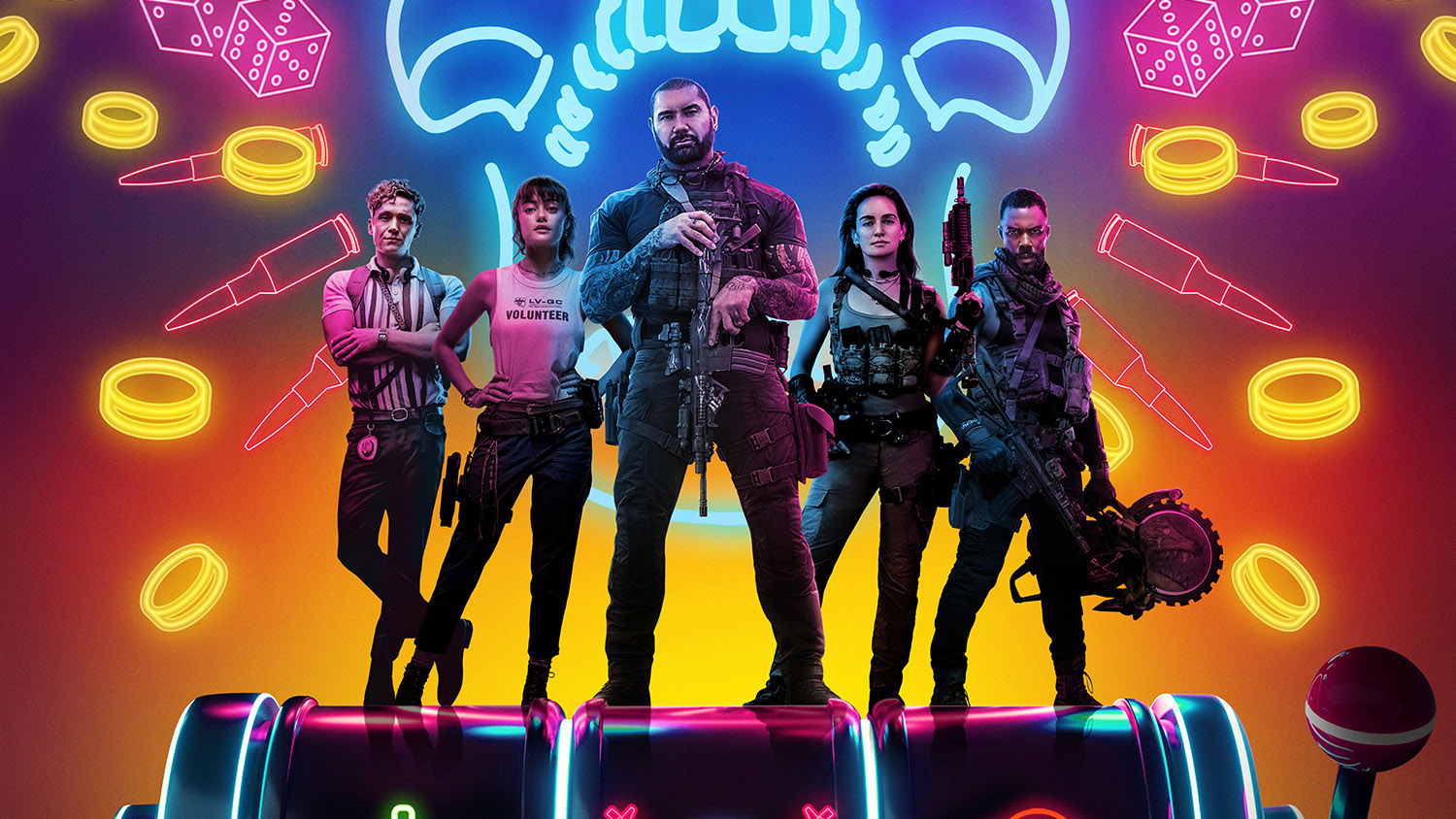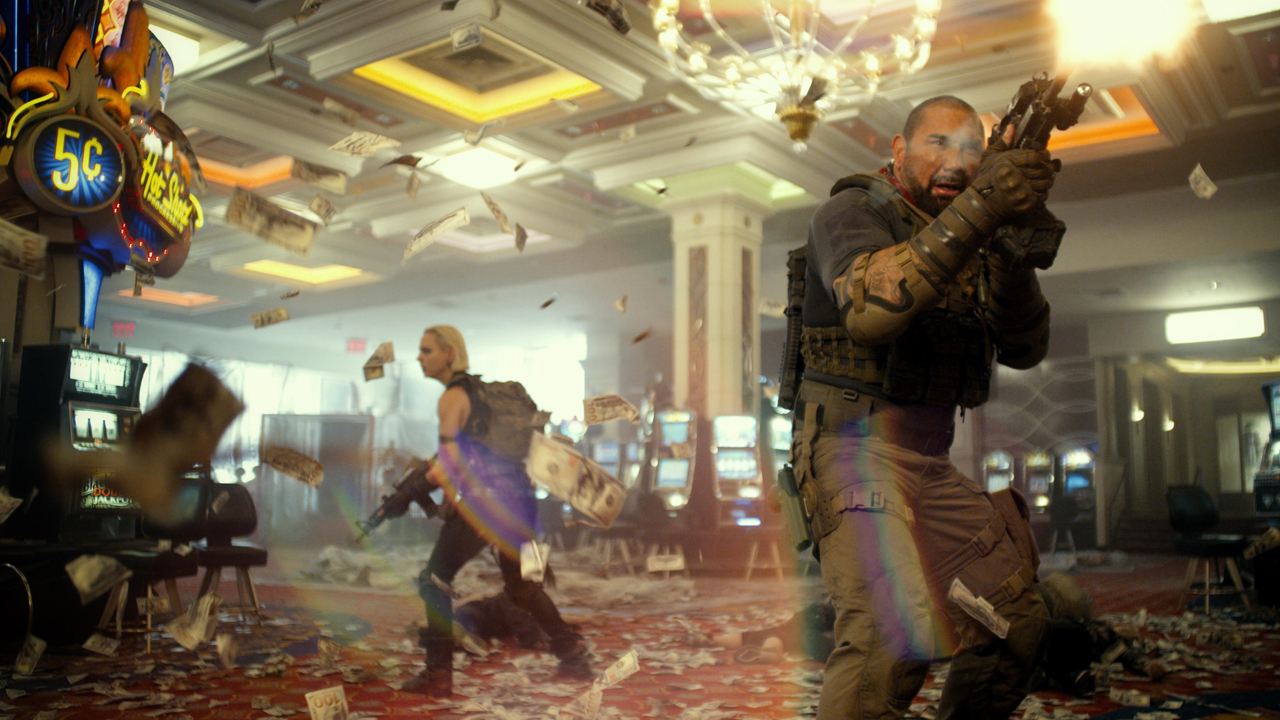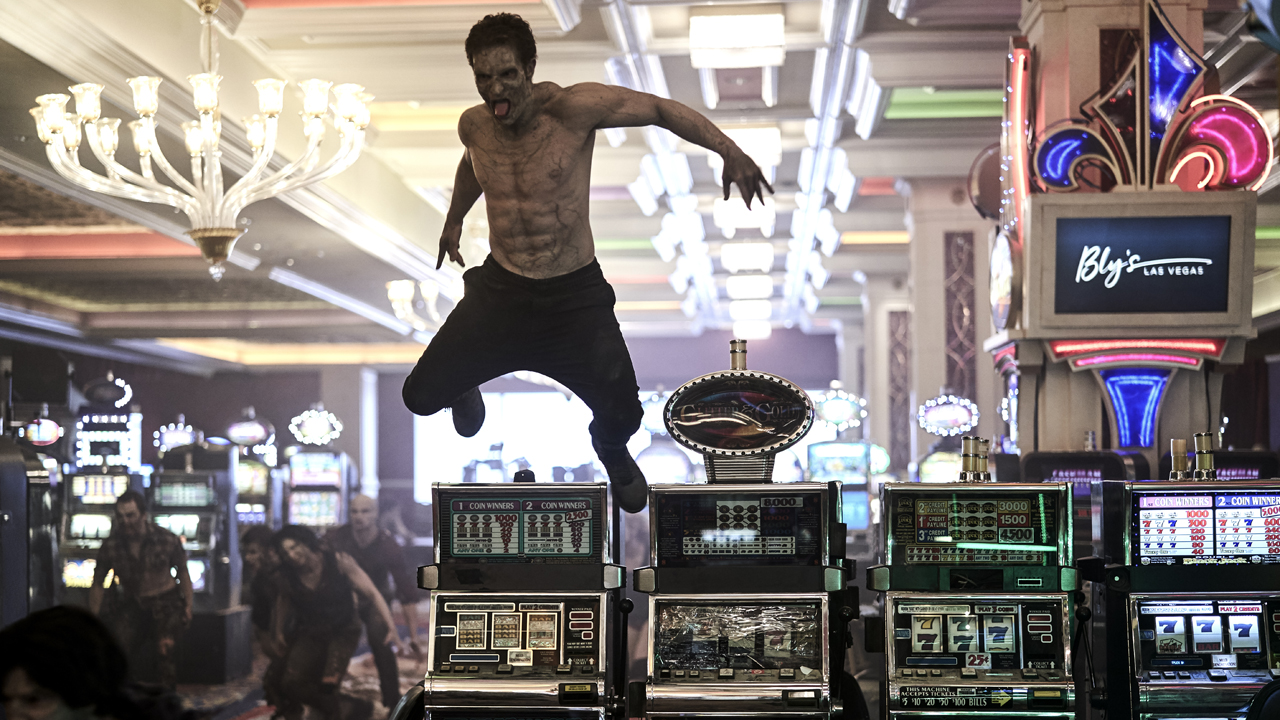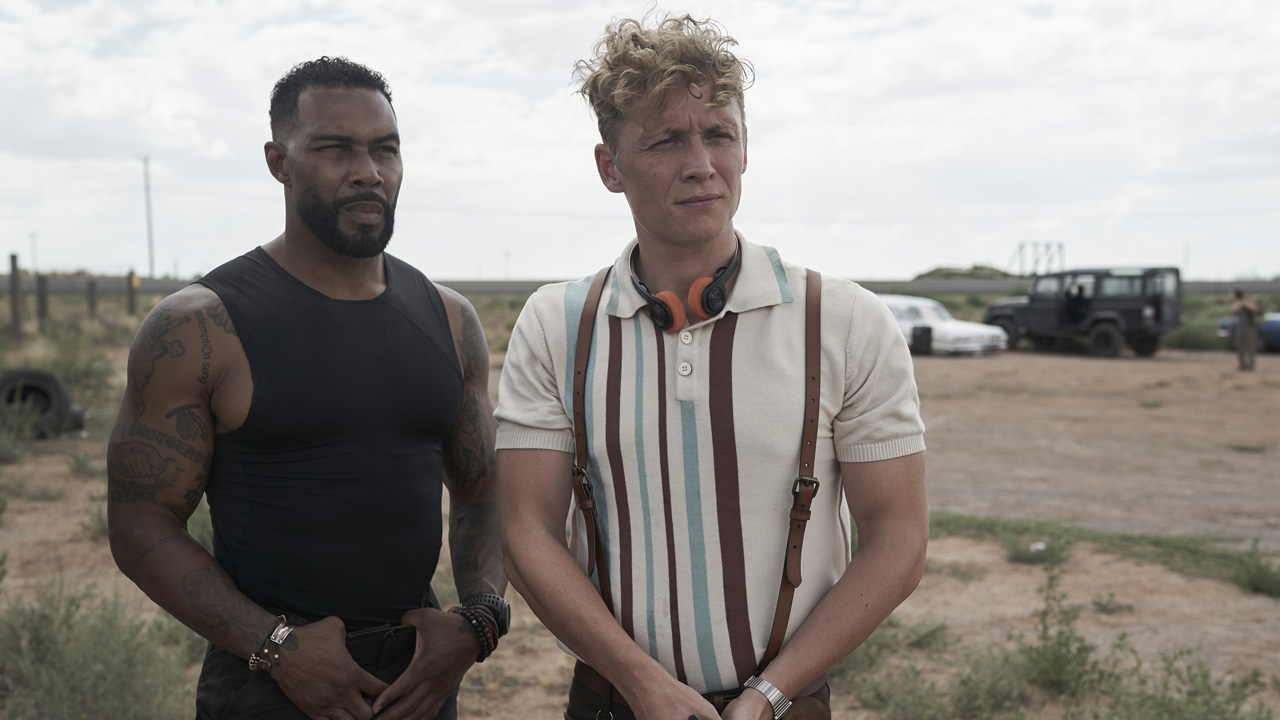
Sign up for breaking news, reviews, opinion, top tech deals, and more.
You are now subscribed
Your newsletter sign-up was successful
Army of the Dead feels like a homecoming for Zack Snyder. Seventeen years on from his feature film debut – a 2004 remake of George Romero’s iconic Dawn of the Dead movie – Snyder returns to his horror roots in his first post-Warner Bros project.
Billed as a zombie-heist film, Army of the Dead is the first of three Netflix projects to which Snyder is tied to – and it’s one that draws big parallels with Romero’s influential zombie back catalog.
Ahead of the film’s launch on May 21, TechRadar sat down with Snyder and its cast to discuss how Army of the Dead, like Romero’s works, reimagines the zombie genre through its social commentary. We also find out what inspired Army of the Dead’s creation, and the reasons that audiences might sympathize with the movie’s undead hordes.
- Here's how Army of the Dead's prequel movie ties into Zack Snyder's latest film
- Best Netflix movies
- Best Netflix TV shows
Reviving an old idea

Set in the aftermath of a Las Vegas-based zombie outbreak, Army of the Dead follows Scott Ward (Dave Bautista), a retired zombie war hero who is approached by casino owner Bly Tanaka (Hiroyuki Sanada) with an intriguing proposition. The task? Complete a mission into the zombie-infested city to retrieve $200 million from one of Tanaka’s casino vaults, and Ward will earn $50 million as his reward.
Ward agrees to Tanaka’s proposal, and assembles a team of specialists including fellow ex-soldiers Vanderohe (Omari Hardwick) and Maria Cruz (Ana de la Reguera), prolific safe-cracker Ludwig Dieter (Matthias Schweighöfer), a zombie expert and Las Vegas guide known as the Coyote (Nora Arnezeder) and helicopter pilot Marianne Peters (Tig Notaro).
However, when the group is unexpectedly joined by Ward’s daughter Kate (Ella Purnell) and Tanaka’s Head of Security Martin (Garret Dillahunt) with mysterious assignments of their own, survival – not money – becomes their number one priority.
Army of the Dead is Snyder’s first non-superhero movie since 2014’s 300: Rise of an Empire, but it’s an idea he’s had for some time. A concept born during his time on Dawn of the Dead, Snyder had initially hired writer Joby Harolds to pen a script ahead of his project’s original March 2007 announcement. However, a plethora of problems, including a costly budget, put paid to those plans and the project was put on ice.
Sign up for breaking news, reviews, opinion, top tech deals, and more.
With his Warner Bros commitments ending with 2017’s Justice League – this year’s Snyder Cut of the same movie aside – Snyder’s search for his next venture eventually led him back to the idea he conceived years earlier.
In a sense, it’s poetic that Snyder would resuscitate a movie about the undead over a decade later. As he explains, though, his original vision for the film hasn’t dramatically changed in the intervening years, save for one personal alteration.
“When I sat down with [screenwriter] Shay Hatten, I told him ‘Let’s not read the old script’, Snyder recalls. “I said ‘Let me tell you the idea and we’ll just do it from scratch’. It [the general idea] hasn’t changed that much, but it [the script] has become enthused with who we are right now. Scott and Kate’s relationship, for example, has changed because my relationship with my kids has changed.”
Unleashing the undead

Reinventing zombies isn’t a new concept to the genre. Similar movies, such as Romero’s Land of the Dead or Danny Boyle's 28 Days Later, have introduced intelligent and athletic zombies respectively to the genre in order to increase the threat that the undead pose to humans.
To differentiate itself from movies that have come before, Army of the Dead approaches its zombies from an emotional perspective. Army of the Dead embraces the genre’s standard, slow-moving zombies – referred to as shamblers by Ward and company – but it also establishes a new breed of zombie that displays emotion.
Enter the alphas: fast, strong, intelligent and emoting zombies who, in the confines of the walled-off Las Vegas, rein over the city’s undead hordes. The formation of a zombie society, not dissimilar to our own or those seen in family-oriented animals, is borne out of this hierarchical approach, and gives Army of the Dead’s zombies a personable feel.
In combining their human appearance with the pack-based mannerisms of wolves and lions, Snyder believes that audiences will empathize with the movie’s alpha zombies, despite their dangerous nature.
“Zombies don’t usually have a consciousness and are hard to connect to,” he explains. “But, in this case, I really wanted them to have this emotion. I treated them like pack animals, who nuzzle each other [to reaffirm their emotional bonds]. I felt that, if I could have the audience feel sympathy or connect to the zombies, then I would have succeeded [with that approach].”
Emotional talking points

As well as its zombie-centric plot and action-packed sequences, Army of the Dead is a thematically dense movie. Its examination of political and societal issues – such as immigration and misogyny – is timely, given how often they appear in the current news cycle.
In the same way that Romero’s Dawn of the Dead was a satirical critique of consumer culture and capitalism, or Train to Busan explored class divide, Army of the Dead’s creative team sought to address these subjects in a sensitive manner – and they certainly left their mark on the film’s cast.
“It’s humbling to add to conversations that are often had in a very persistent and consistent way on social media,” Hardwick says. “You have that commentary in a movie because this is the era where we have to be there for each other globally. For us to say ‘Hey, we’re gonna search this stuff, even if we have to put apple sauce around this medicine we’re getting people to digest with cool shots, action moments and a diverse cast’, that’s pretty powerful.”
“It’s not a cliched zombie movie,” Arnezeder muses. “It criticizes a lot of important topics in our society, such as refugees and social identity, and I think the best thing about making art is taking risks, which this does. It’s very visual and poetic [in that sense], and makes for a profound story.”
Zack Snyder is very aware as an artist... I get why because he's always inserting things that need to be talked about.
Omari Hardwick, Army of the Dead star
Family is also a core theme at the movie’s heart. While Ward’s group has a familial feel to it, despite their varying nationalities and backgrounds, it’s the relationship between Scott and Kate that drives particular theme forward. For reasons we won’t spoil, the duo’s father-daughter bond is dysfunctional at best. Scott and Kate regularly butt heads, and it’s these emotionally charged scenes that specifically challenged Bautista.
“I’m not the most seasoned actor and I don’t have a theatrical background,” he says. “So when you’re in those scenes, it can be exhausting. This film is the first where I had to go through multiple emotions in a very short time, but I want these types of roles so I can stretch myself.”
Army of the Dead brings Snyder’s career full circle following his Dawn of the Dead remake, but his filmmaking work is far from over. Next up for the writer-director are two Army of the Dead spin-offs for Netflix – Army of Thieves and Lost Vegas – that will explore the backstories of certain characters in more detail.
Similar to Romero’s zombie films, which equally act as character studies, Snyder ultimately views Army of the Dead as a character-led movie. The influence of Romero’s works on multiple aspects of his latest project are evident, then – and, in Snyder’s own view, had as big an impact on Army of the Dead as his other filmmaking experiences did.
“It’s funny how the emotional part of the movie is its centerpiece,” Snyder says. “All of the characters, where they are emotionally, become the movie’s heart. Yeah, it’s a zombie-heist movie, but it’s also a character-led one. I feel like I’ve evolved since Dawn of the Dead, and the movie has become more important to me than it was 15 years ago.”
Army of the Dead launches on Netflix on Friday, May 21.
As TechRadar's senior entertainment reporter, Tom covers all of the latest movies, TV shows, and streaming service news that you need to know about. You'll regularly find him writing about the Marvel Cinematic Universe, Star Wars, Netflix, Prime Video, Disney Plus, and many other topics of interest.
An NCTJ-accredited journalist, Tom also writes reviews, analytical articles, opinion pieces, and interview-led features on the biggest franchises, actors, directors and other industry leaders. You may see his quotes pop up in the odd official Marvel Studios video, too, such as this Moon Knight TV spot.
Away from work, Tom can be found checking out the latest video games, immersing himself in his favorite sporting pastime of football, reading the many unread books on his shelf, staying fit at the gym, and petting every dog he comes across.
Got a scoop, interesting story, or an intriguing angle on the latest news in entertainment? Feel free to drop him a line.